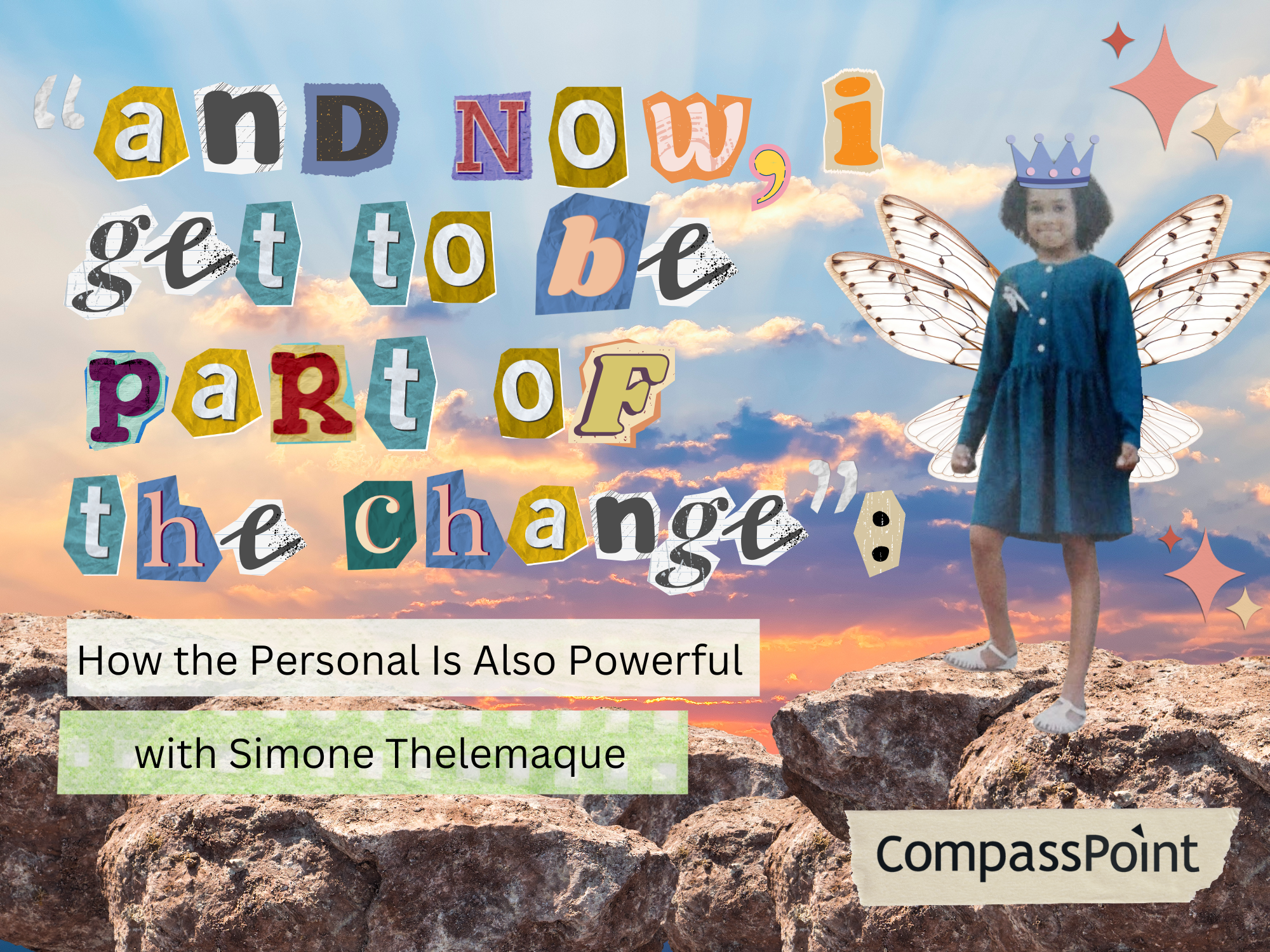Participants of CompassPoint’s leadership development programs often share this truth back to us: A big part of the work of leadership is about creating communities built on trust, fierce love, and, ultimately, mutual flourishing. In this guest post, Darcy Roake, a 2017-2018 participant in CompassPoint’s HIVE Leadership Development Program, tells story of how a community of fellow women repro leaders helped her be a stronger advocate for herself when she needed it the most.
It began with uncertainty and it ended by saving my life.
I had heard of CompassPoint’s HIVE Leadership Development Program through the small but mighty network of repro advocates in New Orleans, Louisiana. While intrigued, I wondered what my role as a Minister—albeit one who is deeply committed to the sacred work of reproductive rights, health and justice—would be within a nonprofit-leader-focused program. As I learned about HIVE throughout the application process, it was one of the first times I both really wanted something and wondered if I was the right fit. I am so grateful that our HIVE facilitators Asha, Spring and Shannon saw past my reticence and to my potential to be one part of a cohesive whole—each of us amazing women-identified leaders bringing our stories, our talents, our humor, our conflict, and our care to 18-months of leadership and personal development. The time that I spent with these women—from learning more about the reproductive justice movement, to peer coaching, to affinity groups, to questioning current structures of power—transformed not only my work as a religious leader, but also my life.
I could tell you more about the power that this fellowship brought to my life or I could show you how it saved it. In spring of 2018, I had an ectopic pregnancy—a sad but natural biological process. But, of course, when we’re talking about women’s health and bodies, particularly in the State of Louisiana, there are always further complications. I first called the doctor on a Saturday, in immense pain. When I finally got through, I was told by the on-call doctor: bleeding and pain is normal. Call back on Monday. Monday came. I could not get my doctor, or any doctor, on the phone. Too busy. Come in a couple of weeks.
Feeling alone and despondent, I recalled the words of the women, particularly the women of color, I had been with in the HIVE for the last year and a half—from doulas to sex education advocates to maternal mortality specialists. In those months I had built relationships. Listened to stories. Heard facts. Black women have the highest maternal mortality rate in our country and women’s pain generally is often ignored. According to several studies cited in the Harvard Medical School article Women and Pain: Disparities in Experience and Treatment, “women in pain are much more likely than men to receive prescriptions for sedatives, rather than pain medication” and “women are seven times more likely than men to be misdiagnosed and discharged in the middle of having a heart attack.” Serena Williams, the GOAT—greatest of all time in tennis and one of the most recognizable sports figures in the world—almost died of blood clots after childbirth. She was not listened to about her pain.
As a white woman, I have been taught to trust medicine and institutions. Sometimes there is a good reason for that—but the black women in the room told me of the times when their pain was ignored; when no one is there to advocate for you but yourself. You must make yourself visible, no matter the consequences. After being told for the tenth time that my pain was normal, I took courage. I knew in my bones, or I suppose my fallopian tubes, that something was wrong. First thing Tuesday morning, I demanded to see the doctor. And right after that I was in the emergency room for internal bleeding—at high risk for death. I was seen only after I leveraged much of my privilege, with insurance and a physician I knew. Louisiana, with some of the worst healthcare in the country, particularly when it comes to reproductive health, has made it a policy priority to ignore and dismiss the poor, people of color, women, and women of color.
When I was discharged from the hospital, after rest and healing episodes of Columbo (don’t judge), the first people outside my family I told was my HIVE. Coincidentally, we had a HIVE retreat that upcoming week centered on self-care. By not showing up, I was trying to live our HIVE values. I remember so vividly weeping in my bed as I wrote that email to the HIVE group to be read aloud toward the retreat’s end; one of equal parts sadness and gratitude.
I would not have advocated for myself in the same way without the HIVE. They saved my life. And while I was proud of the work I had done up to that point for reproductive justice, rights and health, I was fiercely recommitted when our HIVE dispersed. For to be seen and to truly see others, in all their complexity and rights, is one of the deepest and most sacred acts we can participate in. By growing into deeper relationship in the HIVE and beyond, my eyes have become clearer, my perspective has widened. I am a better advocate, a better Minister and a better person. I will use that powerful vision to tirelessly advocate for reproductive justice, rights and health so that not one more life need be needlessly lost or endangered. And so I say again: my time with HIVE began with uncertainty, and ended by saving my life.
The Reverend Darcy Roake is the Minister at Community Church Unitarian Universalist, a Sanctuary Congregation in New Orleans, LA. A particular focus of Rev. Roake's Ministry is reproductive rights, health and justice and, to that effect, she has published pieces in the Huffington Post, the Times-Picayune, and the Advocate. Darcy has a wide background in social justice and pastoral care in settings as varied as Oxfam America, Amnesty International, the United Nations, the Navajo Nation Public Defender's Office, Massachusetts General Hospital, and the Unitarian Universalist Association. Rev. Roake was named a Faith Leader to Watch in 2016 by the Center for American Progress.





Submit a comment